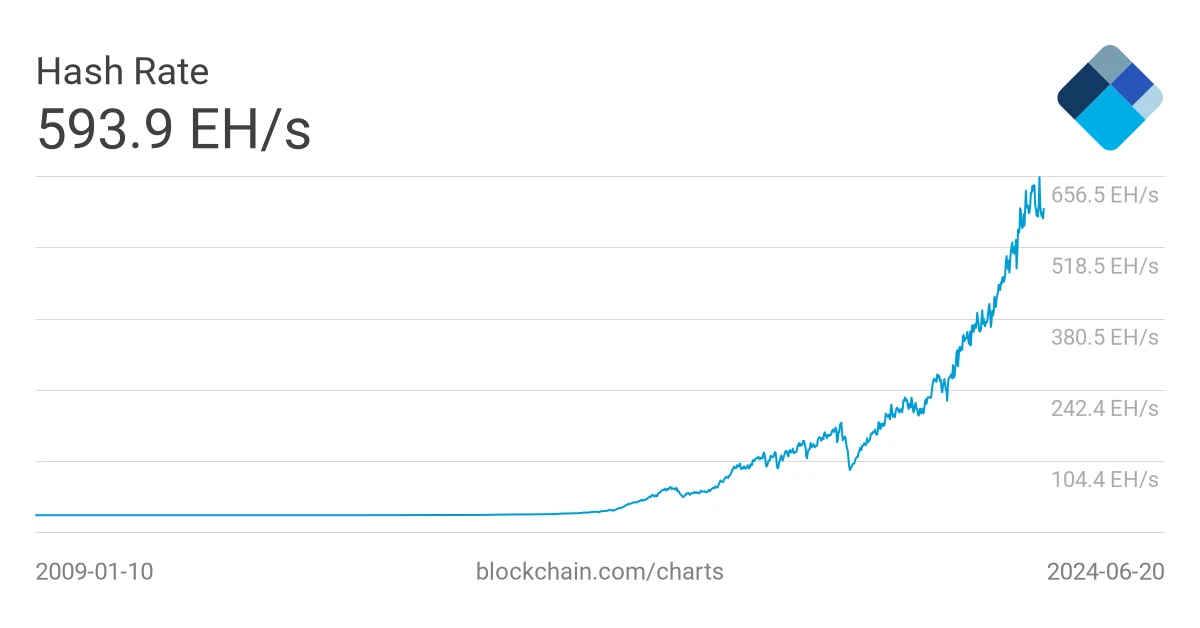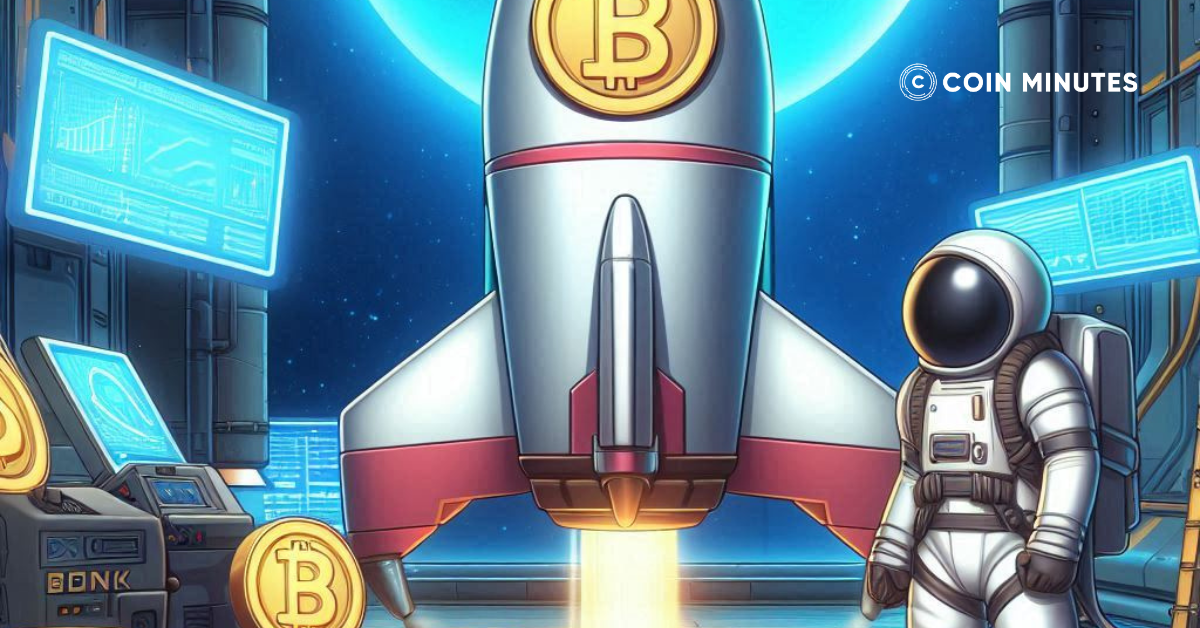Is Bitcoin safe is a common question for many people when they first approach virtual currency.
In theory, Bitcoin is considered safe and very difficult to hack. Besides, it is also safe for long-term investment because it is programmed to become scarce and non-inflationary.
In this article, we will prove that the theories about Bitcoin being safe are correct with well-founded arguments.
Key Takeaways
|
Is Bitcoin Safe?
We will analyze the safety of Bitcoin from two perspectives:
- Is the Bitcoin network secure?
- Is Bitcoin Safe to Invest in?
To answer these two questions briefly, we think Bitcoin is secure and safe to invest in. However, before investing, it’s important to do thorough research and get advice from financial experts.
Is Bitcoin Secure?
The foundation of Bitcoin is blockchain, a digital data recording system maintained by a global network of computers. Users employ a consensus mechanism called proof of work to verify transactions on the blockchain. This mechanism requires users to use computing power to solve complex puzzles, and once the majority deems a block valid, it is added to the blockchain.
To gain control over Bitcoin, you must acquire 51% of the Bitcoin network’s computing power, which is nearly impossible. Currently, Bitcoin’s computing power is approximately 600 million TH/s. To put this in perspective, the world’s most powerful supercomputer, Frontier, only has 579,000 TH/s, equating to 0.0965% of Bitcoin’s hash rate. For the amount of money you have to spend to gain control of Bitcoin, it makes a lot more sense to mine it.

Moreover, hacking Bitcoin is pointless because its value lies in its decentralized nature, recognized by the community. If you were to control Bitcoin, it would lose its value as no one would accept it anymore.
However, Bitcoin has a vulnerability because it uses passwords. To unlock the safe containing BTC as well as transactions, you need to go through a very long and random password called a private key. And of course, you cannot remember that code and need to leave it somewhere easy to access, creating an opportunity for hackers to attack.
Exchanges can be hacked
For maximum security, people often store private keys in cold wallets (physical wallets) completely isolated from the internet. However, this makes transferring Bitcoin inconvenient. Therefore, people store their Bitcoins on reputable exchanges and hot wallets, which are more susceptible to hacking than the Bitcoin network.
Read more: Bitcoin wallets
There have been many cases of crypto exchanges and wallets being hacked in the past. One of the most famous attacks was the hack of the first Bitcoin exchange Mt. Gox in 2011. At that time, hackers used stolen information and exploited a flaw in the network protocol to steal about 27,609 BTC (worth about $400,000). Then in 2014, Mt. Gox suffered another hot wallet hack, resulting in the theft of 850,000 Bitcoins, worth up to $500 million. This was the world’s largest Bitcoin theft to date and caused Mt. Gox to declare bankruptcy.
Other significant hacks include:
- Coincheck (2018): Hackers stole $534 million worth of NEM from the Japanese exchange Coincheck by exploiting a vulnerability in its hot wallet system.
- FTX (2022): Once one of the largest crypto exchanges, FTX was hacked for over $600 million on the day it filed for bankruptcy.
Your wallet can be hacked too
You could also fall victim to hacks if your private key is exposed. Many methods exist for someone to gain control of your hot wallet or related information. One common way is through phishing links that impersonate reputable entities offering rewards like airdrops or new coins, tricking you into entering your wallet or private key, thereby giving them control over your Bitcoin. Your wallet information can also be compromised if your computer is infected with malware from untrusted applications.
These examples show that while the Bitcoin network is very secure, your BTC can still be stolen through exchanges and wallets.
Is Bitcoin Safe to Invest in?
Before diving into CoinMinutes’ analysis, we remind you that this is not financial investment advice; you are responsible for your own decisions. CoinMinutes provides perspectives and knowledge, but make sure to research from various sources and seek advice from financial experts before making a final decision.
We believe Bitcoin can be a safe long-term investment if you have faith in it like many others do.
What value does Bitcoin hold?
Essentially, paper money has no intrinsic value; it represents gold, and governments can always print more. Gold has value because it is a rare metal used in many products, and no one can create gold (at least not yet). Before using gold as a currency, people used shells, stone wheels, and many other items, but these were easily obtainable or counterfeit. Similar to gold, Bitcoin is trusted because it operates on the principle of a fixed supply of 21 million BTC and cannot be counterfeited. However, its value needs to be recognized by people.
Countries gradually accept Bitcoin
With the rise of cryptocurrencies, countries have begun to recognize Bitcoin and regulate it. One prominent supporter of Bitcoin is the United States.
In the U.S., despite previous controversies, particularly with the Securities and Exchange Commission (SEC), these issues have gradually been resolved. In 2018, the SEC recognized Bitcoin as a non-securities due to its decentralized nature and lack of profit expectation from others’ efforts. Early in 2024, the SEC approved 11 spot Bitcoin ETFs, greatly boosting investor confidence. Additionally, the IRS has clear tax regulations on activities involving virtual currencies like mining and trading.
Moreover, some countries have accepted Bitcoin as legal tender. El Salvador was the pioneer in this regard in 2021.
Read more: Bitcoin legal status
Bitcoin is volatile
We see a trend of growing acceptance of cryptocurrencies as assets or investments. However, its value is community-dependent, making it unstable.
This year alone, Bitcoin started at $42,000 in January, peaked at $73,780.07/BTC in March, and now (June 2024) fluctuates around $65,000, demonstrating extreme volatility. Nonetheless, from its inception at no value to its highest prices, Bitcoin shows potential as a long-term investment. Its value tends to rise, and the acceptance of virtual currencies is increasing.

Read more: Bitcoin price history
How to Protect Your Bitcoin?
As we have analyzed above, the Bitcoin network is very secure, but your BTC can be hacked if you are not careful. Here are some things you can do to ensure that your Bitcoin does not fall into the wrong hands.
Do not click on any strange links
This is the most important thing you need to keep in mind to ensure that you are not a victim of a scam. Bad guys can send you a link that looks similar to a reputable address that you know via email, SMS, or social networks. Do your research before clicking on a link or filling in any of your information on websites.
Do not download software from unknown sources
Software from unknown sources has the potential to install malware on your computer. Hackers will then take control of your computer and exploit all the information on it, including your Bitcoin wallet login information. So to be sure, you should only use software from reputable sources and have been verified to be free of malware.
Use a cold wallet
As we mentioned above, using a cold wallet to store your private key is the safest option. It keeps your private key away from the internet and this will help you not to worry about hackers attacking. A cold wallet can be a USB or even a piece of paper with your private key on it. But remember to keep it in a safe place because if you lose or damage it, there will be no way to access the Bitcoin you own.
Split your Bitcoin into different wallets
Never put all your eggs in one basket, split it up. This will help you ensure that when a wallet or exchange is attacked, you will minimize the damage it causes.
Do not brag about your Bitcoin
That’s right, our final piece of advice is that you don’t tell everyone that you own a lot of Bitcoin. You never know what’s coming next.
The Bottom Line
Bitcoin is a secure digital currency because of its strong technology and decentralized system, making it a potentially safe long-term investment. However, users should be careful about protecting their passwords and storing their Bitcoin safely to avoid risks linked to online exchanges and wallets.








